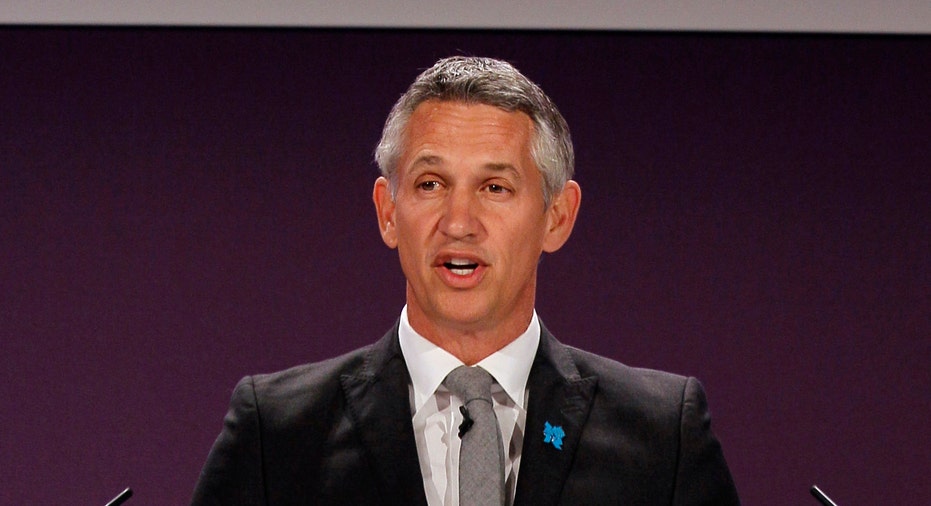BBC list shows men dominate top jobs despite pay promises

LONDON – A list of top earners at the BBC released Wednesday shows that men still dominate the highest-paid jobs despite pledges to grant women equal pay.
The BBC's top earner is soccer presenter Gary Lineker, who took home between 1.75 million pounds ($2.32 million) and 1.76 million pounds. "Strictly Come Dancing" host Claudia Winkleman is the top woman, making 370,000-379,999 pounds.
The salaries were published in bands, rather than as exact figures.
Details revealed in the media company's annual report show that despite the lack of women in the upper tier of pay, some progress was being made in the year since the government forced the BBC to reveal the once-secret salaries of on-air talent.
The information is sensitive because the BBC is funded directly by taxpayers, through a 150-pound (about $198) annual fee on every household that owns a television or watches the BBC online.
"We're trying to get a balanced range of men and women and their pay right cross the organization," said Tony Hall, the director-general of the BBC, adding that "these things take time."
Lineker replaced last year's top earner, Chris Evans, who received 1.66 million-1.67 million for his breakfast radio program. Last year, Evans earned between 2.2 million pounds and 2.25 million pounds, but has since stepped down from his job as a presenter on Top Gear.
Other top earners are DJ Graham Norton and broadcasters Steve Wright, Huw Edwards, Jeremy Vine, Alan Shearer, Nicky Campbell, Nick Grimshaw and Stephen Nolan.
The BBC has been struggling to address the issue, which was highlighted earlier this year when senior journalist Carrie Gracie quit her post as China editor to protest the company's gender pay gap. The BBC later accepted it had underpaid her and agreed to donate back pay to a gender equality charity.
Over the past 12 months, the BBC has also announced pay cuts for some of its male stars.
The BBC said recent changes aren't reflected in a list that compiled salaries until April and that the gender pay gap has been reduced by nearly a fifth over the past year.
The changes are also skewed by the fact that some of the company's well-known presenters work on productions made by a separate BBC commercial arm, which isn't funded by license fees.



















